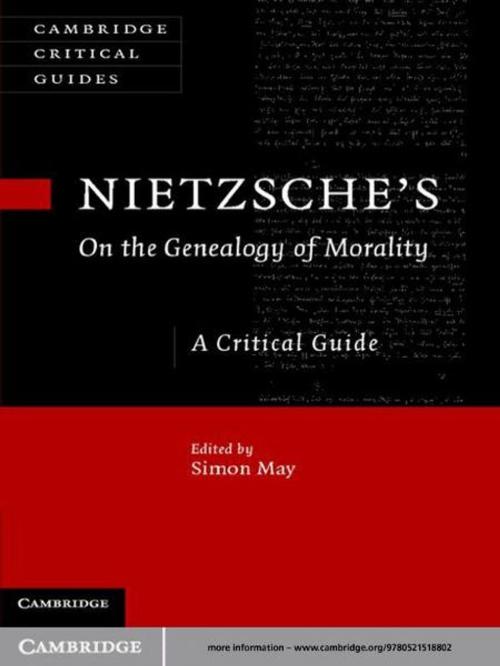Nietzsche's On the Genealogy of Morality
A Critical Guide
Nonfiction, Religion & Spirituality, Philosophy, Modern, Ethics & Moral Philosophy| Author: | ISBN: | 9781139152587 | |
| Publisher: | Cambridge University Press | Publication: | October 13, 2011 |
| Imprint: | Cambridge University Press | Language: | English |
| Author: | |
| ISBN: | 9781139152587 |
| Publisher: | Cambridge University Press |
| Publication: | October 13, 2011 |
| Imprint: | Cambridge University Press |
| Language: | English |
On the Genealogy of Morality is Nietzsche's most influential, provocative, and challenging work of ethics. In this volume of newly commissioned essays, fourteen leading philosophers offer fresh insights into many of the work's central questions: How did our dominant values originate and what functions do they really serve? What future does the concept of 'evil' have - and can it be revalued? What sorts of virtues and ideals does Nietzsche advocate, and are they necessarily incompatible with aspirations to democracy and a free society? What are the nature, role, and scope of genealogy in his critique of morality - and why doesn't his own evaluative standard receive a genealogical critique? Taken together, this superb collection illuminates what a post-Christian and indeed post-moral life might look like, and asks to what extent Nietzsche's Genealogy manages to move beyond morality.
On the Genealogy of Morality is Nietzsche's most influential, provocative, and challenging work of ethics. In this volume of newly commissioned essays, fourteen leading philosophers offer fresh insights into many of the work's central questions: How did our dominant values originate and what functions do they really serve? What future does the concept of 'evil' have - and can it be revalued? What sorts of virtues and ideals does Nietzsche advocate, and are they necessarily incompatible with aspirations to democracy and a free society? What are the nature, role, and scope of genealogy in his critique of morality - and why doesn't his own evaluative standard receive a genealogical critique? Taken together, this superb collection illuminates what a post-Christian and indeed post-moral life might look like, and asks to what extent Nietzsche's Genealogy manages to move beyond morality.















